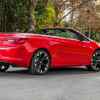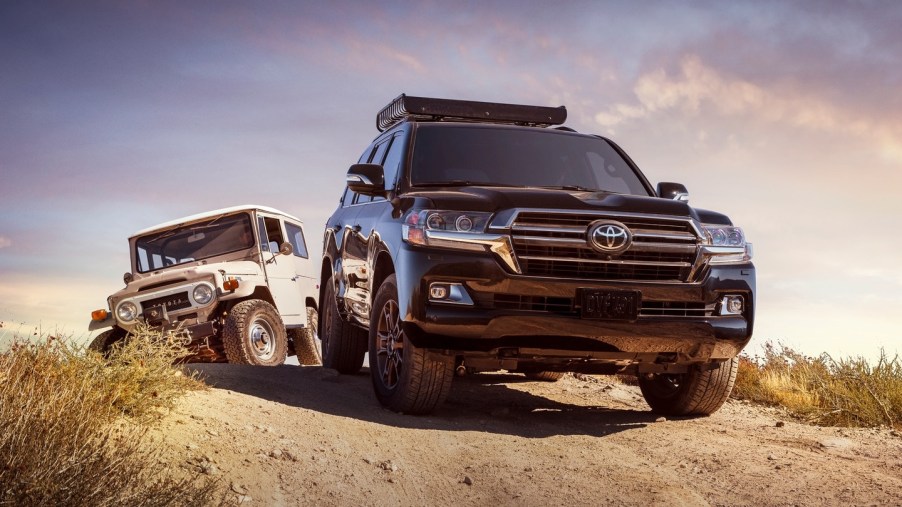
What is the Best Overland Vehicle: Van, SUV, or Japanese Van?
You need only look at the burst in Pontiac Aztek interest to see how overlanding has taken off. A desire to go off-road, or at least look like you can, explains SUVs’ strong sales, especially ones like the Toyota 4Runner. But just like in day-to-day scenarios, an SUV isn’t always the best choice. Volkswagen wouldn’t be producing a new camper van if there wasn’t an interested audience, after all. And paralleling the rising interest in 90s Mitsubishi SUVs is the increasing influence of Japanese vans. But between them, which is the best overland vehicle?
Pros and cons to van overlanding
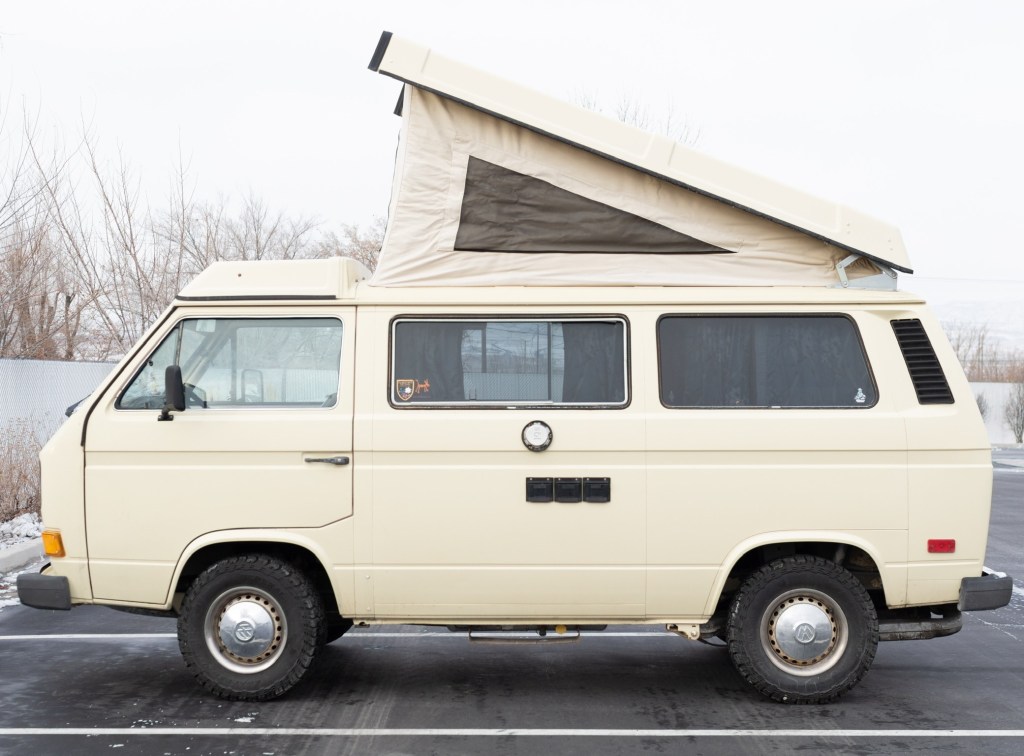
The Volkswagen Microbus, and its van successors, arguably kickstarted the #vanlife trend. Even to this day, as Outside Magazine reports, people still build overland VW vans and buses. The VW Vanagon Syncro isn’t going to out-rock-crawl a Jeep Wrangler, but it borrows from the Suzuki Jimny school of thought: lightweight and four-wheel drive. And Vanagon Westfalias, like the one that recently sold on Bring a Trailer, come with useful features like a built-in kitchen and convertible bed. Plus, you can easily park almost anywhere.
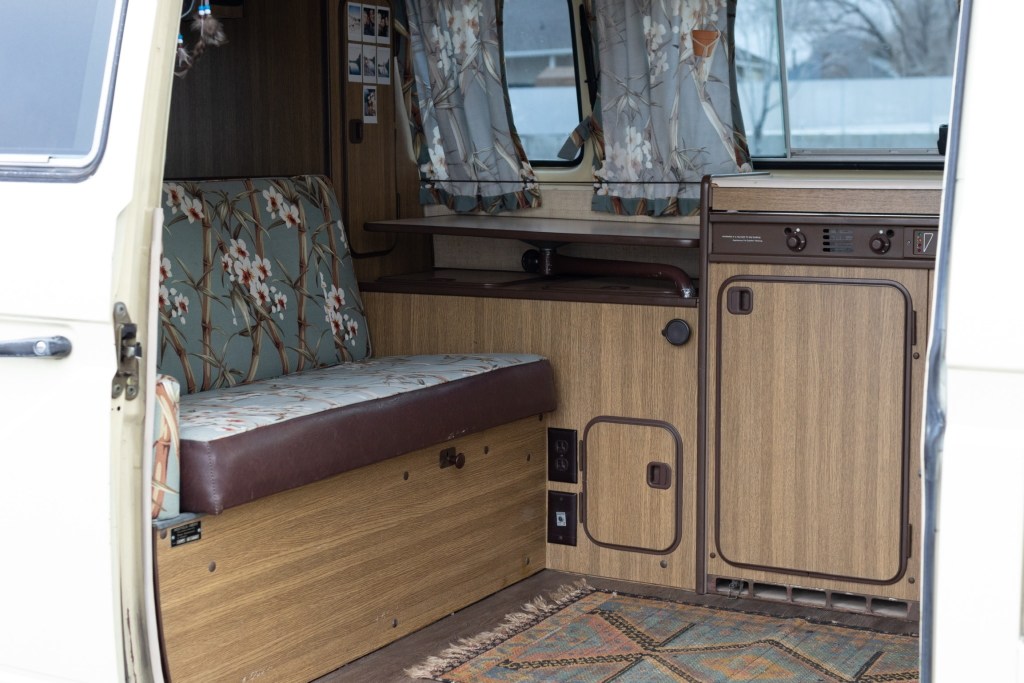
That being said, there are some downsides to VW vans and buses. Although classic VW forum The Samba users report the buses and vans have great interior volume and fuel economy, as overland vehicles, they’re unreliable. Expedition Portal reported on a Vanagon Syncro build that required, among other things, multiple transmission rebuilds and 8 different fuel pumps for its turbo-diesel engine. Adventure Journal concurred, saying that VW vans can be both unreliable and costly to fix.
In addition, older Microbuses and Vanagons don’t have much ground clearance, and their engines aren’t very powerful. Vans like these, Outside Magazine, claims, are best limited to light camping, rather than true overlanding.
When is an SUV the better overland vehicle?
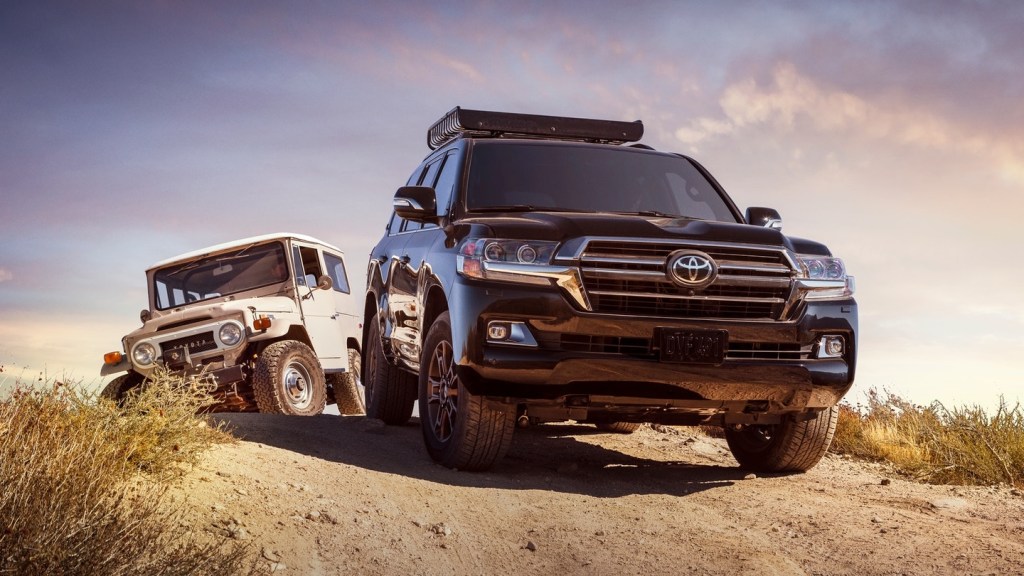
SUVs, especially body-on-frame ones like the 4Runner and Land Cruiser, offer several advantages over vans. For one, in addition to 4WD, they also usually offer features like locking differentials and transfer cases for high- and low-range. Some hard-core overland SUVs even have solid axles, which trade on-road refinement for articulation and dirt-simple durability. They also allow you to fit larger off-road tires. In addition, the body-on-frame design makes it easier to fit things like recovery winches and straps, something Outside Magazine recommends.
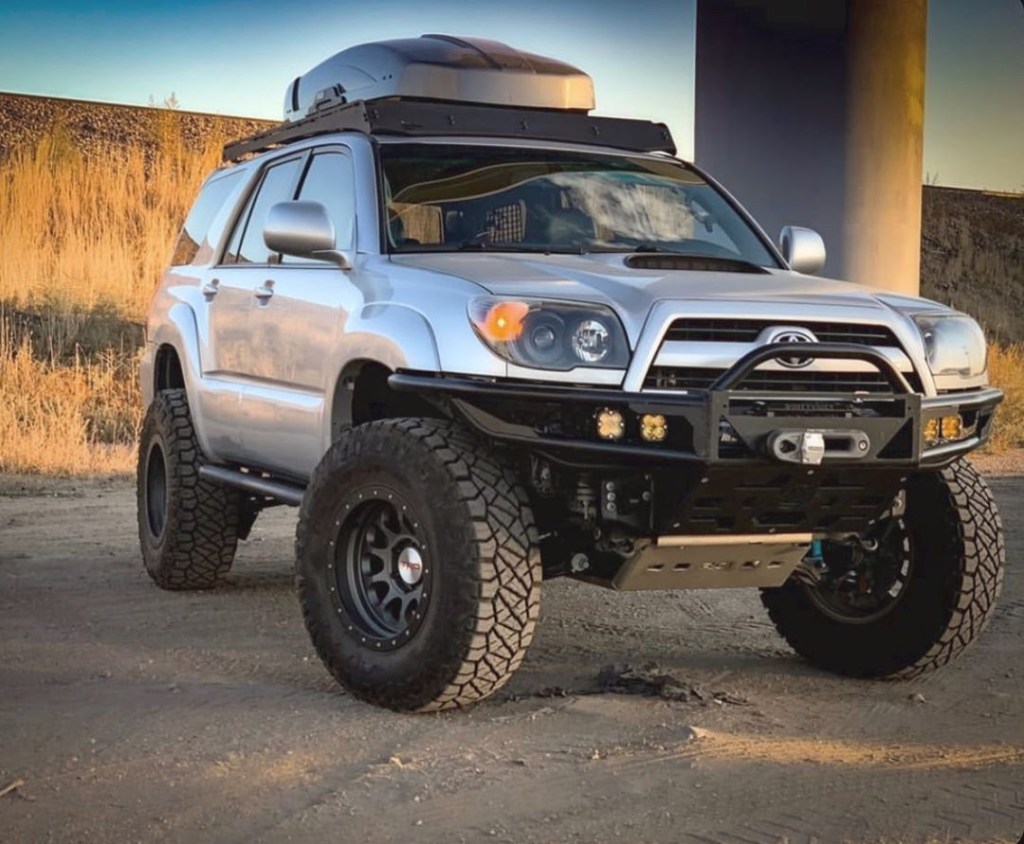
And if you’re worried about reliability, it’s tough finding overland vehicles more reliable than Toyota’s Land Cruiser and 4Runner. The Land Cruiser is perhaps the quintessential overlander, whether in rugged 70-Series form, or the more-luxurious 80- and 100-Series. Other popular choices are Mercedes G-Wagons, Wranglers, and Land Rover Discoveries.
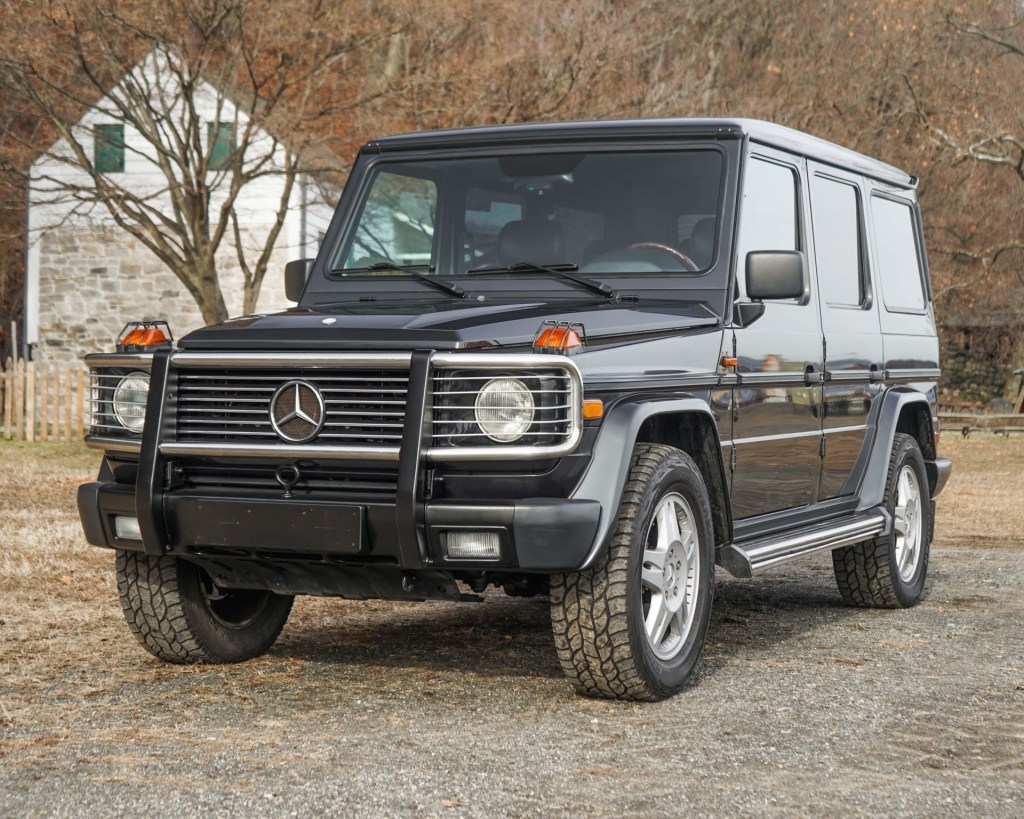
Used G-Wagons are actually fairly affordable—and they have 3 locking differentials. And despite the potential fear of modern electronics breaking in the desert, Outside Magazine reports new SUVs are just as reliable, if not more so than their classic counterparts.
However, choosing an SUV for your overland build comes with its own downsides. Older SUVs are more prone to tipping, and their 4WD systems and generally boxy designs make for poor fuel efficiency. They’re also not particularly spacious inside, and fitting a vehicle with large wheels and solid axles makes for noticeably poorer on-pavement handling and comfort.
What makes a Japanese van a good overland vehicle?
Although kei vans do genuinely offer 4WD capabilities, for an overland vehicle, something larger like the Mitsubishi Delica is preferable.
The Delica, in particular, is a popular overland vehicle. Hagerty reports it’s built on the same chassis as the Mitsubishi Pajero, and its 4WD system also features a high-low transfer case. These vans also come with many useful features, like an altimeter and inclinometer, as well as seats that can swivel and fold down. Many have also been outfitted with off-road accessories, like brush guards and fog lights. Autotrader even reported that some versions had built-in refrigerator/freezer units.
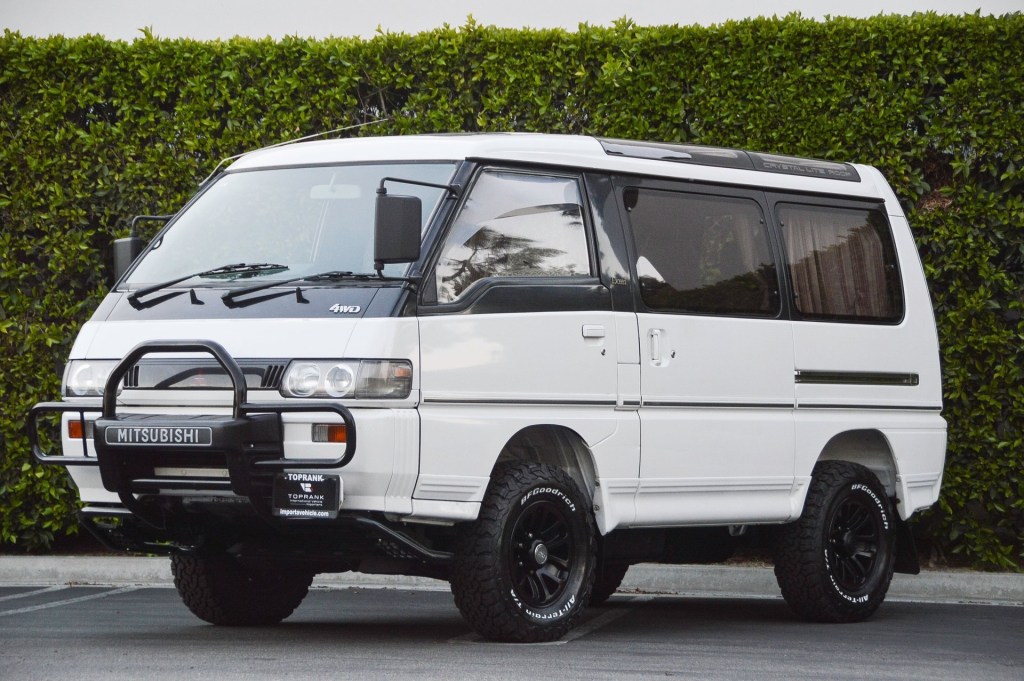
As with the VW vans, Japanese vans are also very comfortable and spacious, according to Overland Way. One Mitsubishi Delica owner reported to Outside Magazine that “it doesn’t feel like a four-wheel-drive vehicle. It’s civilized.” Japanese vans also tend to be more affordable than off-road SUVs, particularly ones that retain their value as well as the 4Runner, Land Cruiser, and G-Class.
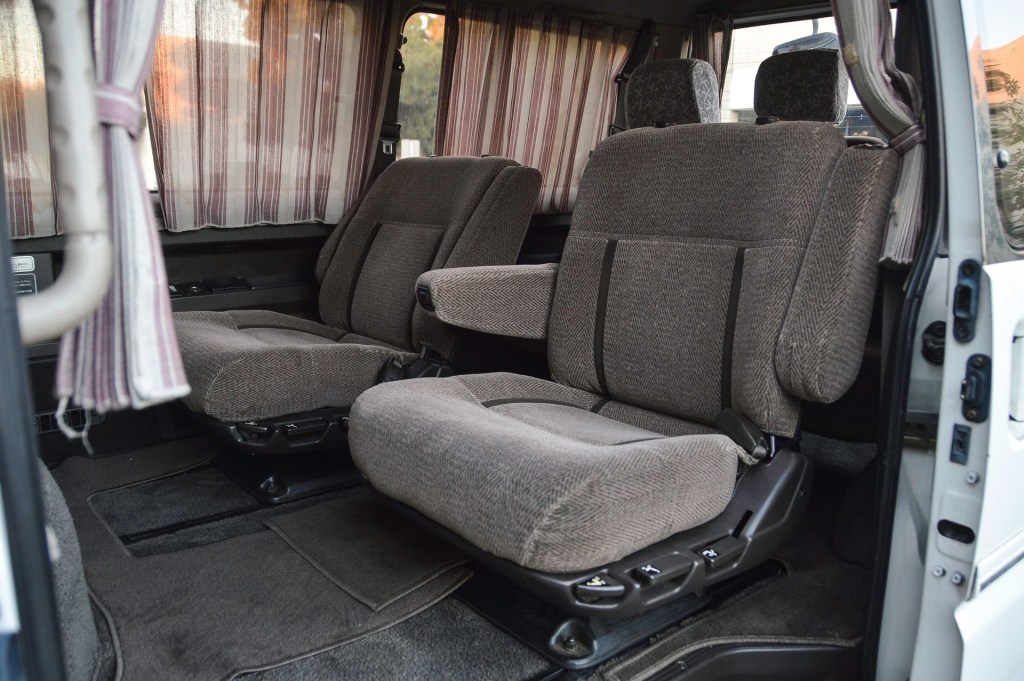
But, again, there are some compromises with a Japanese van. Crankshaft Culture reports that, although more refined than an SUV, the Mitsubishi Delica’s suspension and axle design isn’t terribly more sophisticated. It also doesn’t have a whole lot of wheel travel or articulation: like the VW Vanagon, it’ll go off-road, but don’t expect to conquer Moab. In addition, Japanese vans aren’t particularly fast.
However, although some parts can be difficult to get from your local store in the US, the Delica—and vans like it—were sold in many parts of the world. Meaning, taking your overland vehicle around the world may not be as anxiety-inducing as you might think.
How to pick between them
Purchasing any vehicle, especially an overland vehicle, is going to be about balancing pros and cons. For example, where do you plan on taking your vehicle? How many people will be traveling in it? Once you narrow down your wants and needs, you can start picking out what you want.
If you’re going to be traveling with several people, and especially if you want to cook or store more things inside the vehicle, a VW or Japanese van is likely the better choice. These vans are also more refined on paved roads. Between the two, if reliability and parts availability is a concern, a Japanese van is a safer bet. But, if you do plan on going far away from asphalt and civilization, an SUV should be on your shopping list.
Happy exploring!
Follow more updates from MotorBiscuit on our Facebook page.

